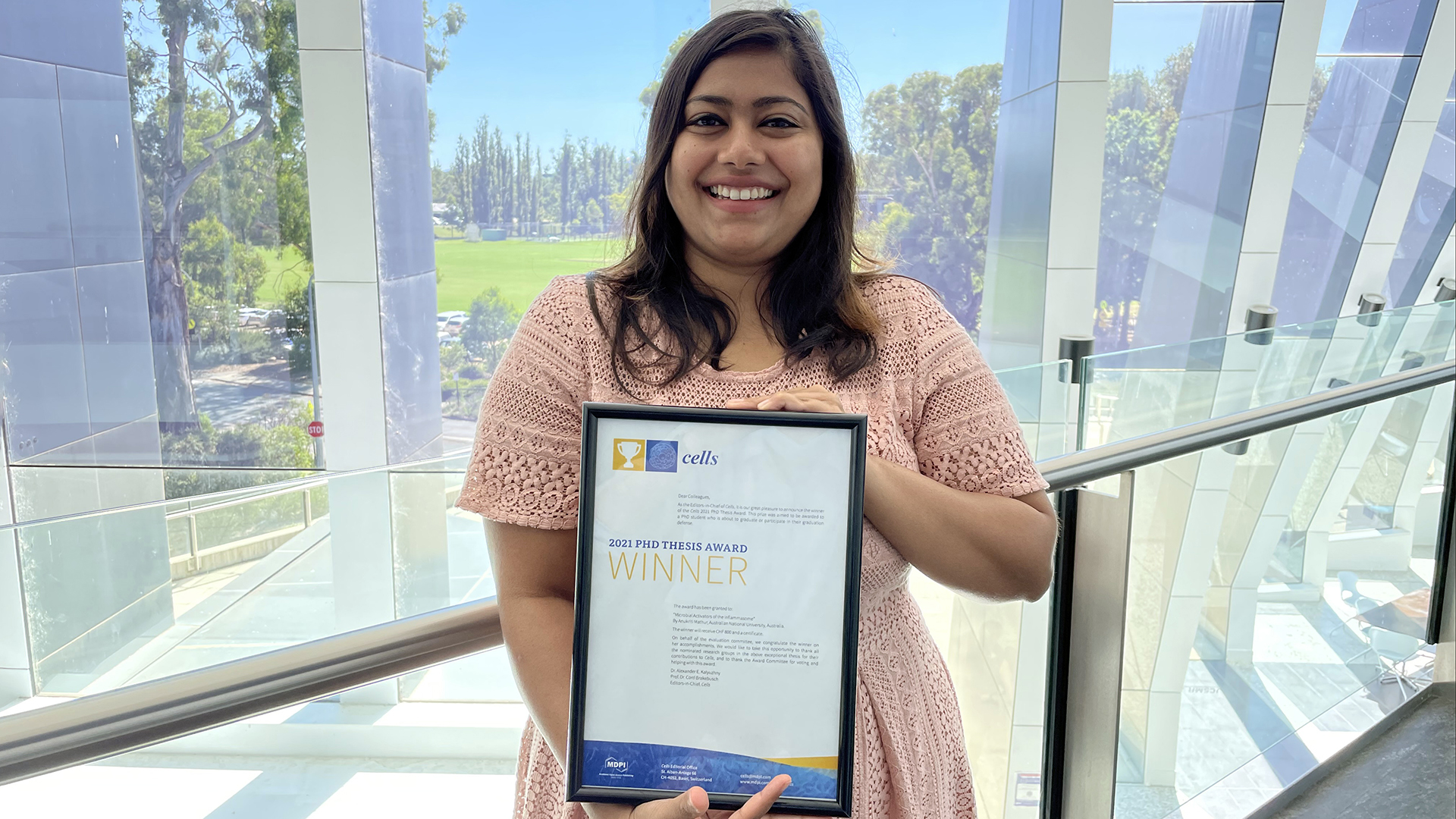Dr Anukriti Mathur wins Cells 2021 PhD Thesis Award

Dr Anukriti Mathur has earned another award for her outstanding research.
Her PhD thesis, “Microbial Activators of the Inflammasome”, was awarded the Cells 2021 PhD Thesis Award by Cells, an international peer-reviewed journal from MDPI.
“It was a pleasant surprise!” said Dr Mathur about the award.
While the good news took a while to reach the winner, the excitement it brought along did not fade.
“I was elated and emotional because I have been waiting for the award results and thought maybe I was unsuccessful,” she said.
Dr Mathur will receive a CHF 800 (AUD$1,200) cash prize and an award.
This award is the latest of many accolades the talented early-career researcher has earned over the past few years.
In 2019, for example, she won the Young Investigator Award from the International Association of Inflammation Societies and the Sidney & Joan Pestka Graduate Award from the International Cytokine & Interferon Society.
Dr Mathur’s PhD research focused on understanding how the innate immune system, our first line of defence against pathogens, work to recognise bacterial toxins.
“Since my undergrad days, learning about the immune system was always brain-stimulating for me,” Dr Mathur said, “With my growing passion in the subject coupled with my personal reasons, I decided to pursue a career in immunology.”
Dr Mathur’s research has shed important light on innate immune responses driven by Bacillus cereus, a food poisoning causing bacterium.
Her work also demonstrated the importance of therapeutic modulation of the innate immune response in treating and preventing sepsis.
Now, as a postdoctoral researcher at the Man Group, Dr Mathur is investigating molecular mechanisms of innate immune sensing in infectious diseases and colorectal cancer.
“Breakthroughs in this field are critical because they not only advance the knowledge of the complex human biology but also inform the development of new therapies and diagnostics,” she said.
Dr Mathur hopes her work can further narrow the gap in knowledge of the immune system and lead her to establish her innate immunology focused laboratory.
